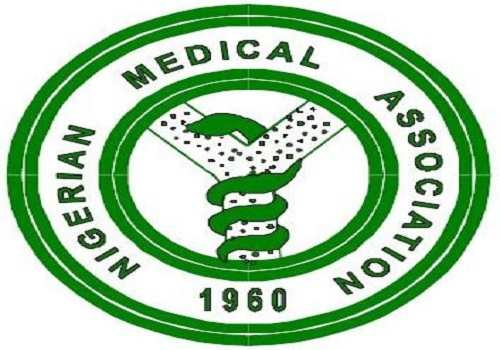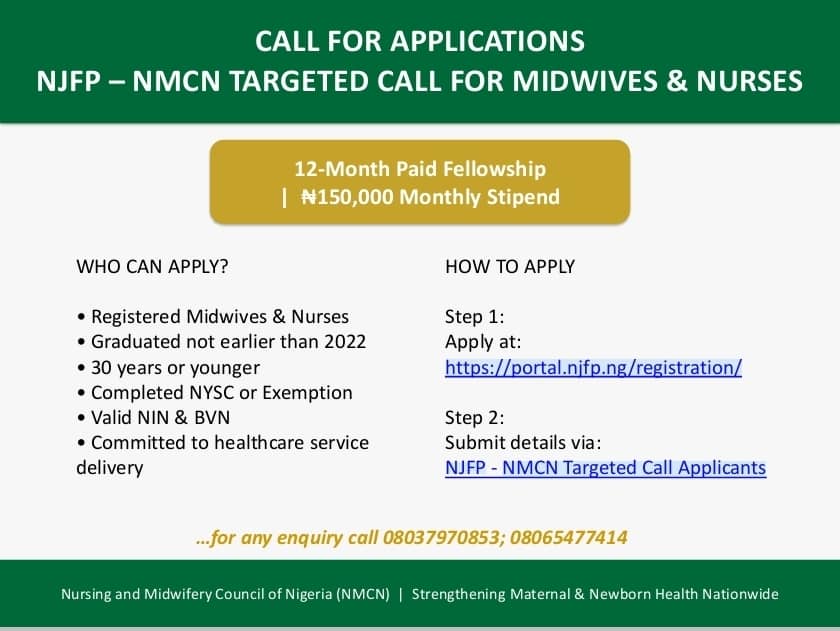A total of 3,383 Nigerian-trained nurses and midwives were licensed to practice in the United Kingdom in one year, The NAN reports.
This is according to the latest report on the number of professionals on the NMC register from April 1, 2022, to March 2023, obtained from the Nursing and Midwifery Council.
The report also showed that so far, 10,639 nurses and midwives practice in the UK.
The NMC is the regulator for nursing and midwifery in the UK and it maintains a register of all nurses, midwives, and specialist community public health nurses and nursing associates eligible to practice in the UK.
The WHO on March 8, 2023, listed Nigeria and other 54 countries as facing the most pressing health workforce challenges related to universal health coverage.
WHO said with the impact of Covid-19 and widespread disruptions to health services, health workers in the identified countries continued to seek better-paid opportunities in wealthier nations.
The WHO said of the 55 countries, 37 are in Africa, eight are in the Western Pacific region, six are in the Eastern Mediterranean region, three are in South-East Asia and one is in the Americas.
Thereafter, the UK government on March 23 placed Nigeria and 53 other countries on the red list of countries that should not be actively targeted for recruitment by health and social care employers.
Meanwhile, the NMC report released on Wednesday showed that the number of nurses, midwives and nursing associates registered to practice in the UK has grown to a record total of 788,638.
The council said the year 2022 to 2023 saw the highest number of new joiners to the register in a single year – more than 52,000. These include 27,142 new professionals educated in the UK and 25,006 professionals educated around the world, mainly outside Europe.
The number of people leaving the professions fell slightly last year to less than 27,000. However, there are concerns about the future retention of staff, with 52 per cent of professionals who left the register saying they did so earlier than planned.
The data showed that Nigeria has the third highest number of foreign nurses and midwives working in the UK after India and the Philippines.
The report read in part, “76.8 per cent of internationally educated professionals (educated outside the UK and EU/EEA) (104,506 out of 136,116) are from India, the Philippines and Nigeria. In 2022–2023, the number of people educated in India overtook the number of professionals from the Philippines.”
The report noted further that since March 2018, there had been an increase in the number of persons joining the permanent register from the UK. It said between April 2022 and March 2023, 27,142 people from the UK joined the register.
The number of persons from the UK leaving the permanent register remained relatively similar to the previous year. In 2022–2023, no fewer than 22,997 people from the UK left the register.
The graphical analysis by the council on the number of Nigerian nurses and midwives that moved to the UK in 2018 was 2,796, but the number increased to 3,021 in 2019.
It further showed that by 2020, 3,684 Nigerian nurses and midwives were already practicing in the UK, and that the number increased to 4,310 in 2021, and 7,256 in 2022.
By March 31, 2023, the number of Nigerian nurses and midwives practicing in the UK is now 10,639.
Also, the number of nurses and midwives from the Philippines in the UK is now 45,472, while the number of nurses and midwives from India practicing in the UK is now 48,395.
Earlier in May, the President, National Association of Nigeria Nurses and Midwives, Michael Nnachi, said over 75,000 nurses and midwives left the country in five years to seek greener pastures as a result of poor wages and lack of decent work environment.
Nnachi decried the insecurity in the country, particularly the kidnapping of its members for ransom and violence against its members at the workplace while discharging their duties.
He had stated, “As a result of poor wages and lack of decent work environment, over 75,000 nurses and midwives have migrated from Nigeria within five years.
“The shortage of nurses and midwives, especially in certain areas of specialisation and geographic region, the increased rates of attrition and a chronic shortage of nursing personnel in the country increased workloads on nurses without an equivalent compensation, exposing them to more health hazards and compromising the quality of healthcare delivery.”
NARD’s 128-day strike
Meanwhile, findings by our correspondent showed that the strike embarked upon by the National Association of Resident Doctors resulted in a loss of 128 working days between 2016 and 2023, which implied that resident doctors spent about four months on industrial action under the administration of former President Muhammadu Buhari to press home their demands.
The strikes were a result of the government’s failure to meet the demands of the doctors over the years.
Our correspondent gathered that the doctors, under the leadership of Dr Muhammad Askira, embarked on an 18-day strike in 2016. Askira listed some of their demands to include payments of members’ salaries and appropriate placement of members in states and federal tertiary hospitals across the nation.
Others were the reversal of sacked members in some hospitals as well as appropriate funding of the residency training programme.
In 2017, under the leadership of Dr John Onyebueze, resident doctors went on at least 21 days of nationwide strike due to the failure of the government to resolve the salary shortfall of 2016 and January to May 2017 among others.
In 2020, the doctors went on a one-week strike amid the Covid-19 pandemic. The doctors requested for the provision of personal protective equipment for all health workers, immediate reversal of the disengagement of 26 resident doctors in Jos University Teaching Hospital and the payment of all salaries owed them, in keeping with provisions of the Medical Residency Training Act; among others.
The association embarked on another strike from September 7 to 10, 2020, to press home its demands.
NARD went on strike on April 1, 2021. The strike was suspended on April 10 due to the intervention of the Speaker of the House of Representatives, Femi Gbajabiamila.
Another strike by the association began on August 2, 2021, and was suspended after 64 days.
Some of the demands made by NARD were the immediate salary payment to all house officers and an upward review of the hazard allowance to 50 per cent of consolidated salaries of all health workers, among others.
NARD ended its five-day warning strike on May 22, the latest by the union. It, however, said it would review the Federal Government’s commitment to resolving its concerns on June 2, 2023.
The doctors are demanding an immediate increment in the Consolidated Medical Salary Structure to the tune of 200 per cent of the current gross salaries of doctors.
The doctors also want immediate massive recruitment of clinical staff in the hospitals and the immediate withdrawal of the bill seeking to compel medical and dental graduates to render five-year compulsory services in Nigeria before being granted full licence to practise, among others.




